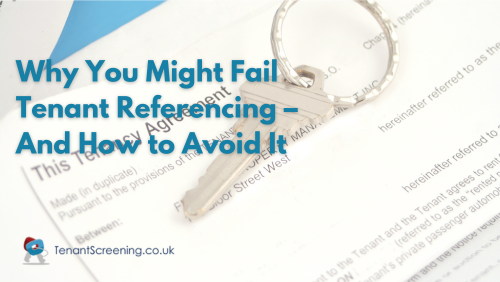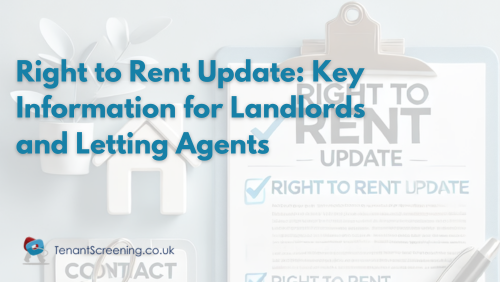Why You Might Fail Tenant Referencing – And How to Avoid It
Securing your dream rental property can be stressful—especially when tenant referencing is part of the process. From credit history and income verification to previous rental issues, landlords use these checks to protect their investment and ensure a smooth tenant-landlord relationship. In this article, we break down the common reasons you might fail tenant referencing and explain what steps you can take if your application is declined. Read on to learn how to improve your rental prospects and navigate this crucial stage with confidence.
Common Reasons for Failing Tenant Referencing
Poor Credit History
A low credit score or a history of late payments, loan defaults, or financial mismanagement is one of the most common pitfalls. Landlords rely on credit checks to gauge your financial reliability.
Tip: Consider reviewing your credit report beforehand and taking steps to improve your score before looking to rent a property.
Insufficient Income
Your income must be high enough to comfortably cover rent and living expenses. If your earnings fall short of the set criteria, it can trigger a rejection.
Tip: Provide recent pay slips, bank statements, or additional financial documentation to prove your income stability.
Previous Rental Issues
Past problems, such as eviction notices, unresolved disputes with former landlords, or a history of property damage, can negatively impact your tenant referencing report.
Tip: If you’ve encountered issues before, prepare a clear explanation and offer references that can vouch for your improved reliability.
Unstable Employment
Steady employment is key with providing assurance that you’ll be able to pay rent consistently. Gaps in employment or an unstable job may raise red flags.
Tip: Include recent employment letters or references from your employer to reinforce your position.
What Happens If You Fail Tenant Referencing?
Failing tenant referencing isn’t necessarily the end of the road. Depending on the landlord or letting agency’s policies, several outcomes may follow:
Application Rejection
The most immediate consequence is that your rental application may be outright rejected if the referencing report shows significant risks.
Need for a Guarantor
If your application raises concerns, some landlords might still consider you—provided you can secure a guarantor. This person will be responsible for covering your rent if you’re unable to meet your financial obligations.
Tip: Choose a guarantor with a stable income and a solid credit history to strengthen your case.
Additional References or Explanations
Landlords might ask for extra references or detailed explanations about any negative items on your report. Honesty and transparency can help alleviate concerns.
Tip: Write a cover letter explaining any discrepancies and what you’ve done to improve your situation.
Consideration of Individual Circumstances
Some landlords take a more holistic approach, weighing personal circumstances and recent improvements against past issues.
Tip: Highlight any positive changes, such as improved credit scores or stable employment, to present a balanced view.
Exploring Alternative Rental Options
If one landlord rejects your application, don’t lose hope. Different landlords have varying criteria, and exploring alternative properties may lead you to a more suitable match.
Final Thoughts
Understanding why you might fail tenant referencing is the first step towards improving your rental prospects. Whether it’s addressing your credit score, securing steady employment, or simply providing additional documentation, taking proactive measures can significantly boost your chances of success.
To find out more about tenant referencing please contact the team on 01793 847014/[email protected]








